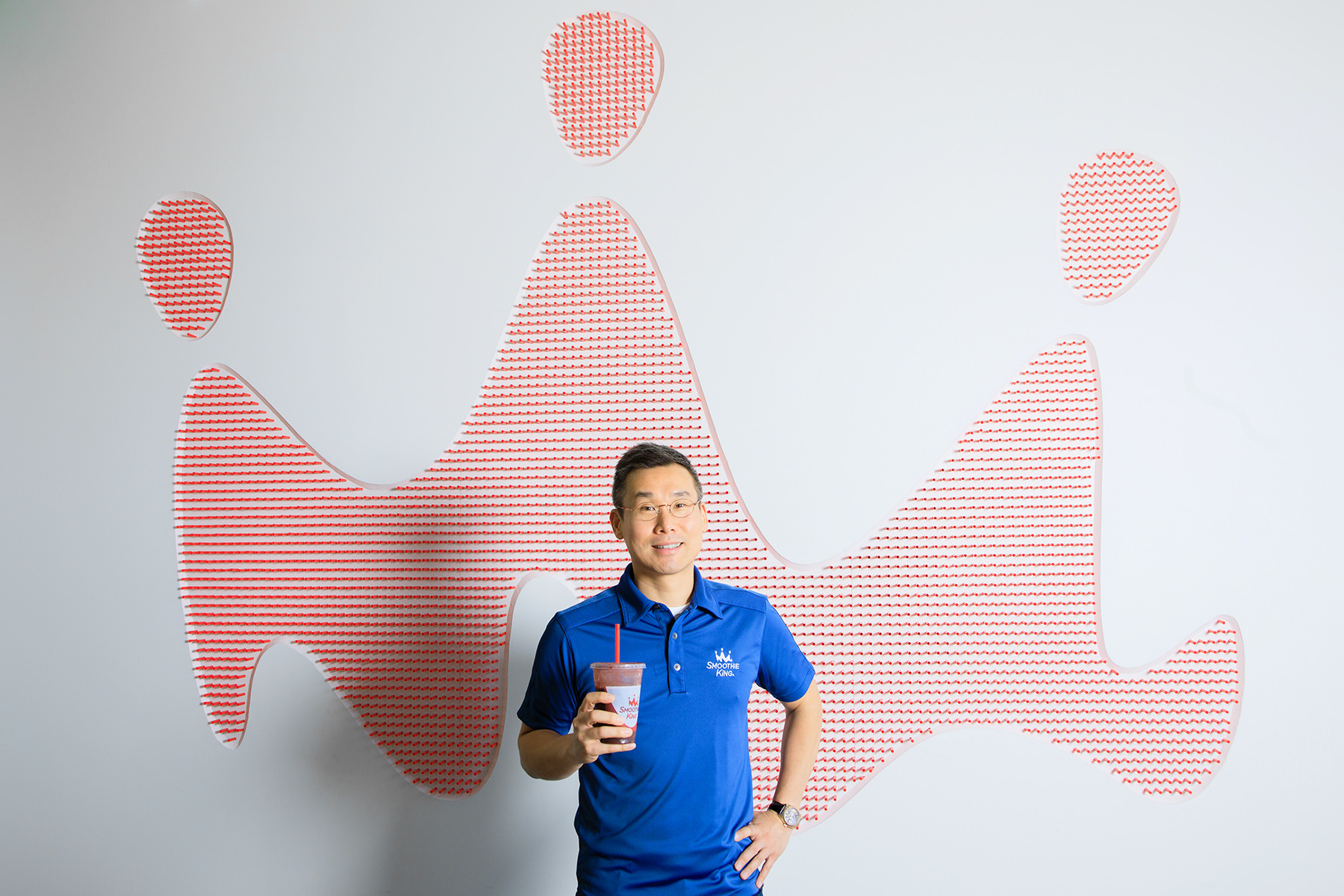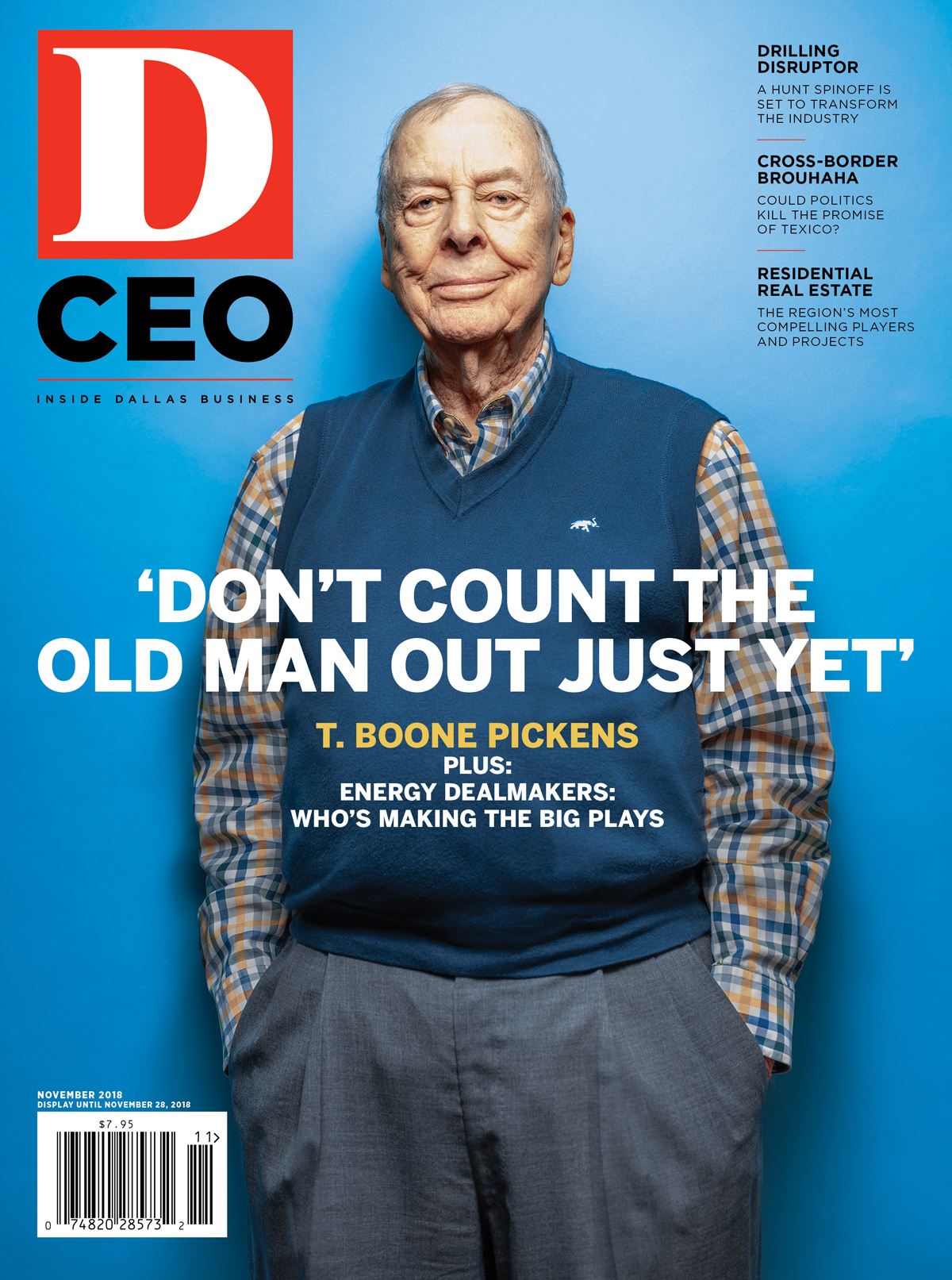Red and white balloons float overhead and the sound of whirring blenders fills the air. The bright Richardson storefront is filling up fast. It is the grand opening of Smoothie King’s 1,000th location, and CEO Wan Kim is seated at a table in the corner, reminiscing about his early days with the company.
Born in Seoul, Kim attended college in Boston, where he became a Smoothie King fan. After graduation, he went to work for his father’s lucrative electronics manufacturing company. Before long, though, Kim left his dad’s business to start a venture capital firm with his friends. When that failed, he turned his attention back to smoothies—this time as a business venture.
By 2003, Koreans had more disposable income and were becoming increasingly health-conscious. Kim saw an opportunity. He opened his first Smoothie King franchise in a flashy $1.3 million building in downtown Seoul, but ran into a problem: Koreans didn’t know what a smoothie was. “We had to educate the whole country,” Kim says. “It wasn’t easy. But after four years, when people talked about smoothies, they knew Smoothie King was the place.”
It took an aggressive marketing campaign, financial struggle, and a lot of hard work, but the concept took off. By 2010, Kim had opened more than 110 stores in South Korea. The market was becoming saturated, so he began planning his next bold move.
Smoothie King was founded in 1973 by Louisianan Steve Kuhnau, who’d begun blending fruit as an alternative to lactose-laden beverages like shakes and malts. Kim reached out to Kuhnau with an offer to purchase the franchise company. In 2012, Kuhnau retired and Kim took the helm.
The new CEO made it his mission to bring Smoothie King back to its health-conscious roots. In 2017, he rolled out the “Cleaner Blending” initiative—an overhaul that revamped the brand’s recipes by eliminating added sugar, artificial flavors, and GMOs.
“A lot of brands have evolved—even McDonald’s has gotten healthier,” Kim says. “We’ve had to evolve again.”
Earlier this year, Kim moved the Smoothie King headquarters from Louisiana to Dallas’ Cypress Waters to support the company’s future growth. In addition to its proximity to a bustling international airport, the Dallas-Fort Worth area offers a large talent pool—something Kim calls the key to continued success.
“I believe Dallas is becoming a hub for franchising businesses in the food and beverage industry,” he says.
Back at the new Richardson location, Kim leaves his seat to mingle before the grand-opening ceremony starts. The milestone is worth celebrating, but it’s not the end of Kim’s smoothie journey. Over the past five years, Smoothie King has enjoyed a compound annual growth rate of 13 percent. At the end of 2017, the company’s average sales per store was nearly $500,000; it’s Kim’s goal to raise that number to $700,000. Within five years, he hopes to be celebrating the opening of the 1,800th Smoothie King location.
“Numbers will follow when we do what people want—and that means going after the healthy and active lifestyle,” Kim says. “When we have more stores than McDonald’s, the world will be a different place.”






